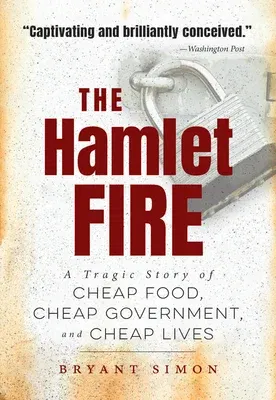For decades, the small, quiet town of Hamlet, North Carolina, thrived
thanks to the railroad. But by the 1970s, it had become a postindustrial
backwater, a magnet for businesses in search of cheap labor and almost
no oversight. Imperial Food Products was one of those businesses. The
company set up shop in Hamlet in the 1980s. Workers who complained about
low pay and hazardous working conditions at the plant were silenced or
fired. But jobs were scarce in town, so workers kept coming back, and
the company continued to operate with impunity. Then, on the morning of
September 3, 1991, the never-inspected chicken-processing plant a
stone's throw from Hamlet's city hall burst into flames. Twenty-five
people perished that day behind the plant's locked and bolted doors. It
remains one of the deadliest accidents ever in the history of the modern
American food industry.
Eighty years after the Triangle Shirtwaist Fire, industrial disasters
were supposed to have been a thing of the past in the United States.
However, as award-winning historian Bryant Simon shows, the pursuit of
cheap food merged with economic decline in small towns across the South
and the nation to devalue laborers and create perilous working
conditions. The Hamlet fire and its aftermath reveal the social costs of
antiunionism, lax regulations, and ongoing racial discrimination. Using
oral histories, contemporary news coverage, and state records, Simon has
constructed a vivid, potent, and disturbing social autopsy of this town,
this factory, and this time that exposes how cheap labor, cheap
government, and cheap food came together in a way that was destined to
result in tragedy.


